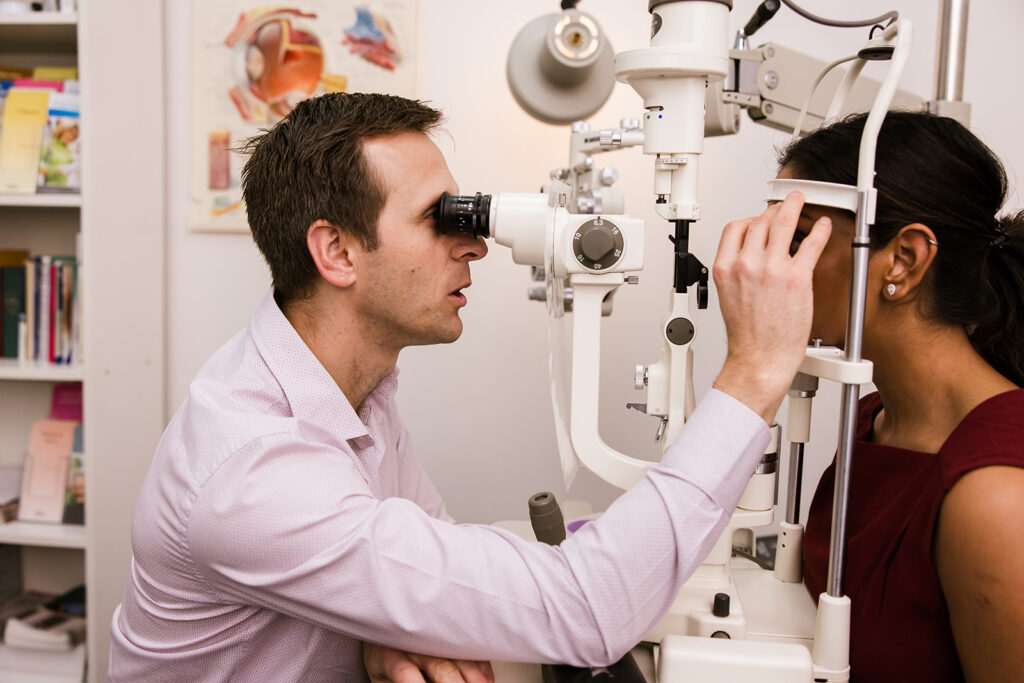The Importance of Regular Eye Exams: What You Need to Know

Your eyes are incredible organs, providing you with the sense of sight, allowing you to navigate and experience the world around you. Yet, despite their importance, many of us tend to take our eye health for granted. Regular eye exams are often overlooked, but they are a crucial aspect of maintaining optimal vision and overall well-being. In this article, we’ll delve into why regular eye exams are essential and what you need to know about scheduling and attending them.
Why Regular Eye Exams Matter:
1. Detecting Vision Problems Early: Many eye conditions, such as glaucoma, cataracts, and age-related macular degeneration, develop gradually and may not show noticeable symptoms in their early stages. Regular eye exams can detect these conditions early on, allowing for prompt treatment and management to prevent vision loss.
2. Monitoring Eye Health: Just like regular medical check-ups, routine eye exams help monitor the health of your eyes over time. Your optometrist can track any changes in your vision or eye health, enabling them to intervene if necessary and prevent potential complications.
3. Assessing Overall Health: Did you know that your eyes can provide valuable insights into your overall health? During an eye exam, optometrists can detect signs of systemic conditions such as diabetes, high blood pressure, and autoimmune disorders. Detecting these conditions early through an eye exam can lead to timely referrals for further evaluation and treatment by other healthcare professionals.
4. Updating Prescriptions: If you wear glasses or contact lenses, your vision can change over time. Regular eye exams ensure that your prescription is up-to-date, allowing you to see clearly and comfortably. Even if you don’t currently wear corrective lenses, changes in your vision can occur gradually, making regular exams essential for maintaining optimal visual acuity.
5. Educating Patients: Eye exams provide an opportunity for patients to learn about proper eye care and healthy lifestyle habits that can preserve their vision. Optometrists can offer personalised advice on topics such as UV protection, digital eye strain prevention, and nutrition for eye health, empowering patients to take proactive steps towards preserving their vision.
When to Schedule an Eye Exam:
So, how often should you have your eyes examined? While individual needs may vary based on factors such as age, overall health, and family history of eye conditions, the American Optometric Association recommends the following guidelines:
– Children and teenagers: A comprehensive eye exam should be conducted at least once between the ages of 6 and 12, and then every two years thereafter.
– Adults aged 18-64: Adults with no risk factors for eye disease should have a comprehensive eye exam at least every two years. Individuals with risk factors such as diabetes or a family history of eye disease may need more frequent exams as recommended by their optometrist.
– Adults aged 65 and older: Seniors should have annual comprehensive eye exams, as age increases the risk of developing eye conditions such as cataracts, glaucoma, and macular degeneration.
Regular eye exams are an essential aspect of maintaining good eye health and overall well-being. By scheduling routine exams with your optometrist, you can detect vision problems early, monitor eye health, assess your overall health, update prescriptions, and receive valuable education about proper eye care.
Remember, your eyesight is precious, so don’t overlook the importance of regular eye exams in preserving it for years to come. Schedule your next eye exam today and invest in the health of your eyes.
